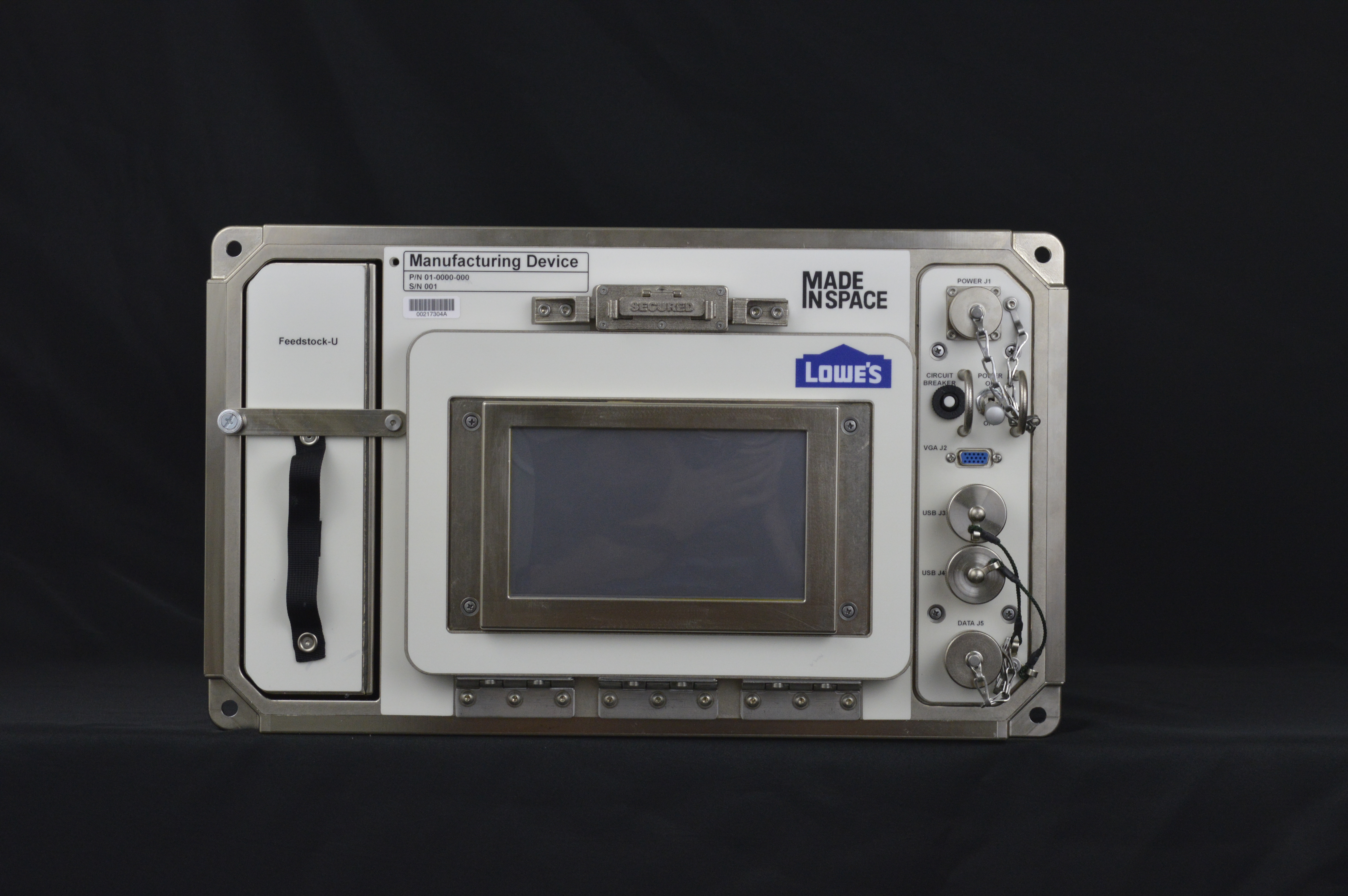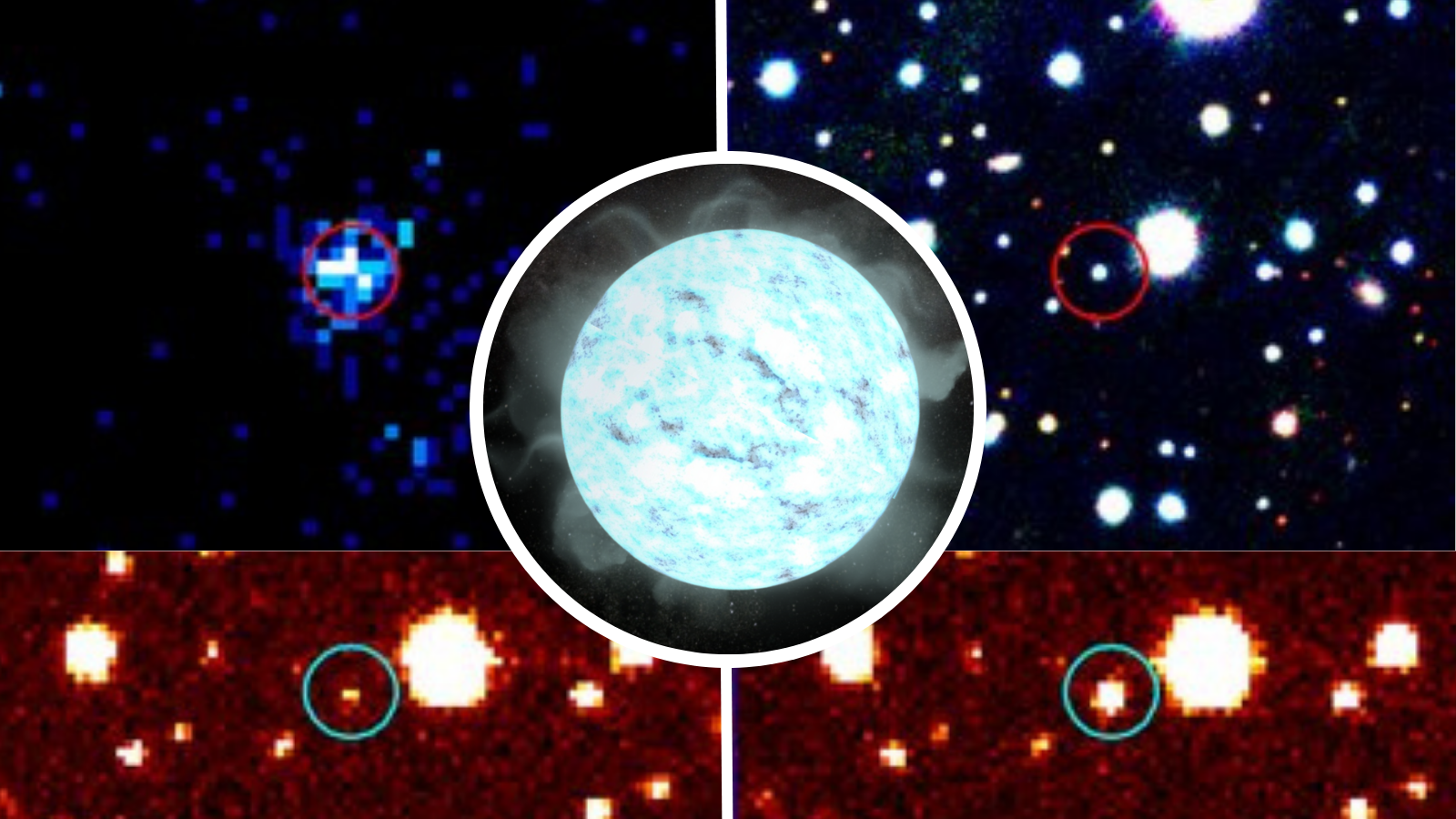
The home-improvement industry will soon get its first foothold in space.
California-based startup Made In Space is partnering with home-improvement giant Lowe's to launch a commercial 3D printer to the International Space Station (ISS) early next year, representatives of both companies announced today (Oct. 29).
Made In Space built the 3D printer, which is called the Additive Manufacturing Facility (AMF), and will retain ownership of the machine. But the AMF sports a Lowe's logo, and the company will use it to make branded tools. [10 Ways 3D Printing Could Transform Space Travel]
"It is the first hardware store in space," Kyle Nel, executive director of Lowe's Innovation Labs, the company's innovation hub, told Space.com. "Lowe's sells tools on Earth, and this way we're going to be able to provide tools in space as well."
One Lowe's store in the San Francisco Bay Area will also feature a replica of the AMF, as well as the section of the ISS that houses it, after the 3D printer gets to orbit, Nel added.
Made In Space hardware is already aboard the ISS; the company built a technology-demonstrating 3D printer for NASA that was installed aboard the space station in November 2014. That machine has worked well in microgravity conditions, paving the way for the AMF, which will be a fully operational, commercially oriented machine available to a variety of customers.
The AMF's launch date and launch provider have not yet been determined, but the 3D printer should get off the ground in the first half of next year, Made In Space president Andrew Rush said.
Get the Space.com Newsletter
Breaking space news, the latest updates on rocket launches, skywatching events and more!
Space-based 3D printing has the potential to help humanity extend its footprint out into the solar system, by making us far less dependent on supplies from Earth, advocates say. NASA has high hopes for the technology, which creates products layer by layer out of metal, plastic or other "feedstock" material. (Eventually, such feedstock could be sourced on the moon or Mars, aiding efforts to colonize those bodies, proponents of the technology say.)
Indeed, the space agency worked with Made In Space to get the first 3D printer aboard the orbiting lab. NASA has also been testing 3D-printed rocket parts, and it also recently awarded a $125,000 grant to a scientist who aims to build a prototype 3D printer that makes food.
Made In Space's long-term goals center on helping to open the heavens to crewed exploration, and the collaboration with Lowe's represents a step along that journey, Rush said.
"We see this relationship as a great validation of that path from space-technology development to terrestrial spinoff, which I think is crucial to the growth of the industry, and also crucial to people's awareness of the industry," Rush told Space.com.
"More is coming," he added, "so stay tuned."
Follow Mike Wall on Twitter @michaeldwall and Google+. Follow us @Spacedotcom, Facebook or Google+. Originally published on Space.com.
Join our Space Forums to keep talking space on the latest missions, night sky and more! And if you have a news tip, correction or comment, let us know at: community@space.com.

Michael Wall is a Senior Space Writer with Space.com and joined the team in 2010. He primarily covers exoplanets, spaceflight and military space, but has been known to dabble in the space art beat. His book about the search for alien life, "Out There," was published on Nov. 13, 2018. Before becoming a science writer, Michael worked as a herpetologist and wildlife biologist. He has a Ph.D. in evolutionary biology from the University of Sydney, Australia, a bachelor's degree from the University of Arizona, and a graduate certificate in science writing from the University of California, Santa Cruz. To find out what his latest project is, you can follow Michael on Twitter.
